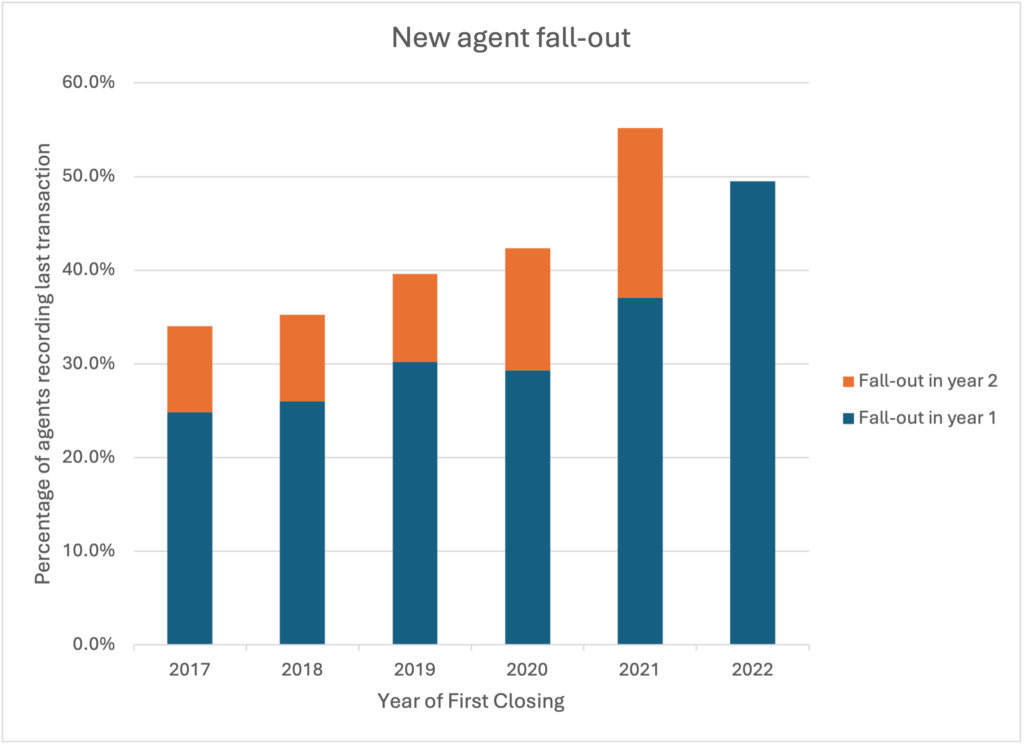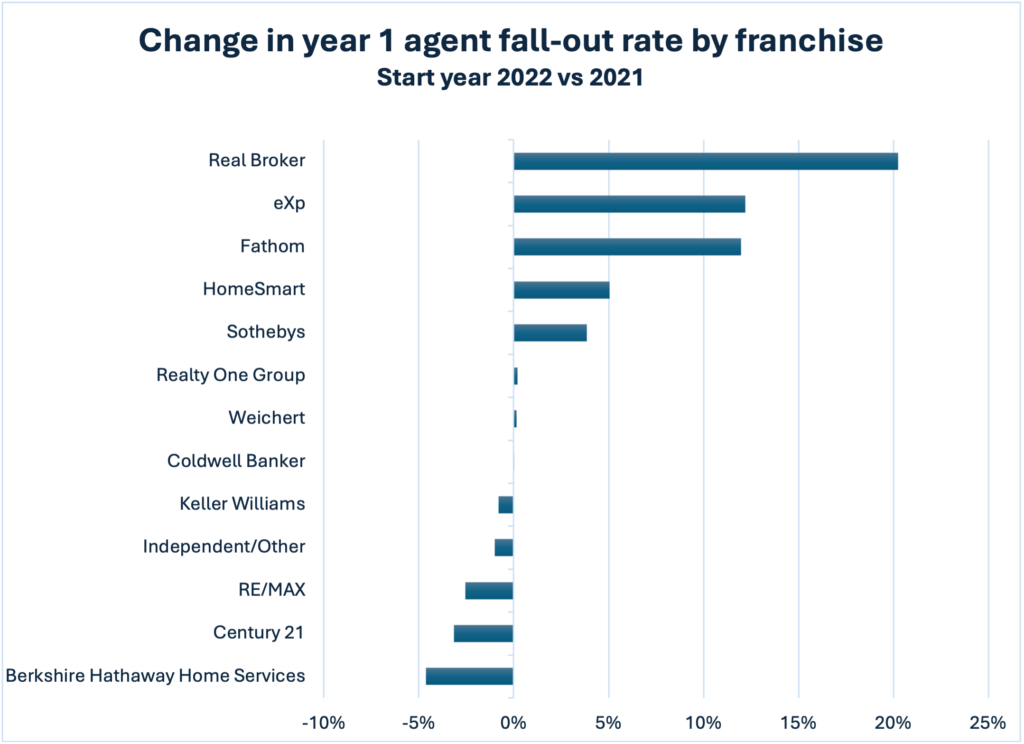New real estate agents have always faced a difficult weeding-out process where the market determines which will make real estate a career and which will move on to other pursuits. Recent findings highlight a notable trend: nearly half of the agents who began their careers in 2022 did not manage to secure a single transaction in 2023. This statistic reflects a broader challenge within the industry that merits careful consideration and discussion among its leaders.
A Pattern of Rising Failure Rates
The real estate sector has long been known for its high attrition rates among newcomers. What is particularly alarming, however, is the steady increase in this failure rate since 2020. This trend underscores a growing challenge within the industry that demands immediate attention and action. The booming real estate market and the historically low interest rates of 2021 and 2022 acted as a double-edged sword. While they provided fertile ground for new entrants, they also created an environment where many could secure initial success without necessarily acquiring the skills required for long-term survival in the industry.
A Stark Reality: 49% Failure Rate Among Newcomers

The numbers speak volumes. About 49% of agents who celebrated their first closing in 2022 found themselves unable to replicate that success in the subsequent year. This represents a significant increase from the 37% failure rate among agents who had their first closing in 2021, and it starkly contrasts with the average year-one failure rate of 28% recorded between 2017 and 2020. When looking at both year 1 and year 2 fall-out, that is agents who fail to record a transaction two years after the first closing year, the total failure rate of new agents who started in 2021 rises above 50%. It’s too early to assess what that metric might be for agents starting in 2022 but the number could easily top 65% representing a survival rate of 1 in 3 new agents who started that year. Such statistics are indicative of a deeper issue: the ease of entering the market during favorable conditions has led many to underestimate the complexities and challenges of the real estate profession.
The Role of Franchise Models in Rising Failure Rates

A contributing factor to this growing failure rate is the proliferation of franchise models with higher manager-to-agent ratios, such as eXp, Fathom, and Real Broker. These models, while offering various benefits and opportunities for agents, also highlight the need for more robust support and training systems. The success of any real estate agent, especially those who are newly licensed, hinges significantly on the guidance and mentorship they receive. In environments where the focus is on expanding agent networks rapidly, individual new agents may find themselves navigating the complex market dynamics without the necessary support, leading to increased chances of failure.
The Way Forward: Addressing the Challenge
Many of those who leave real estate had the raw material to be solid agents and lead successful careers. The current state of affairs calls for a concerted effort from all stakeholders within the real estate industry to address this growing challenge. Industry leaders must prioritize the development of comprehensive training and mentorship programs that equip new agents with the skills and knowledge required to thrive in any market condition. Additionally, there is a need for a cultural shift that promotes resilience, continuous learning, and adaptability among agents.
Real estate brokerages, especially those operating on management-lite models, should renew and strengthen their approach to new agent support. Reducing the manager-to-agent ratio and fostering a more collaborative and supportive environment can make a significant difference in the success rates of new agents. Moreover, leveraging technology and data analytics to provide agents with insights and tools for market analysis could further enhance their ability to secure successful transactions.
Conclusion
The real estate industry stands at a critical juncture. The rising failure rate among new agents not only affects individual livelihoods but also has broader implications for the market’s health and reputation. By acknowledging this issue and implementing strategic interventions, the industry can ensure that new entrants are not merely attracted by the prospect of quick success but are prepared for the long haul. After all, the strength of the real estate market lies not just in the properties it sells but in the professionals who navigate its complexities with skill, integrity, and resilience.

